Cold Brew vs Iced Coffee: Differences, Taste, And Which Is More?
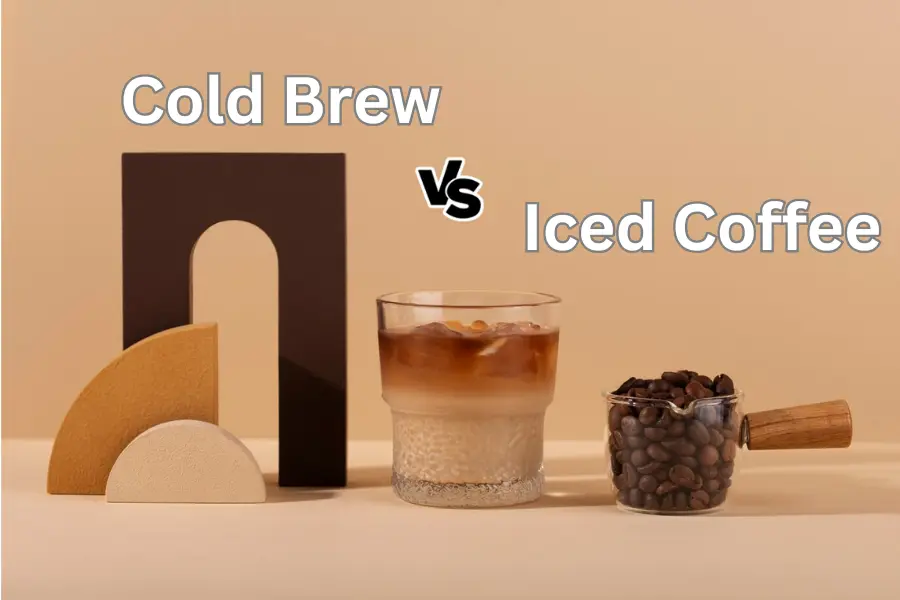
When it comes to great coffee, cold brew vs iced coffee are must-try drinks that you don’t miss. Both are cold beverages and truly ideal for summertime. What is better than enjoying a refreshing cold drink during hot days? However, the preparation methods as well as taste profiles can be vastly divergent.
As a coffee addict, you might be wondering what are the differences between cold brew and iced coffee. Once you fully grasp these distinctions, you can determine which suits your taste, caffeine demands, and lifestyle. This is why today, we will find out the differences between these wonderful coffees to make you choose wisely before your next cup.
What is Cold Brew?

Cold brew is a type of coffee where coarsely ground coffee is steeped in cold water for a very long time (12 to 24 hours). The notable aspect of cold brew is the natural cold flavor. The result of this slow and cold process turns out to be rather mellow, not as acid in taste, and natively sweet.
Since this brew takes longer to make, it is mostly stronger and more concentrated compared to regular coffee. You may drink it straight or diluted with water, milk, or ice. It’s ideal for those who enjoy a mellow refreshing coffee taste.
What is Iced Coffee?
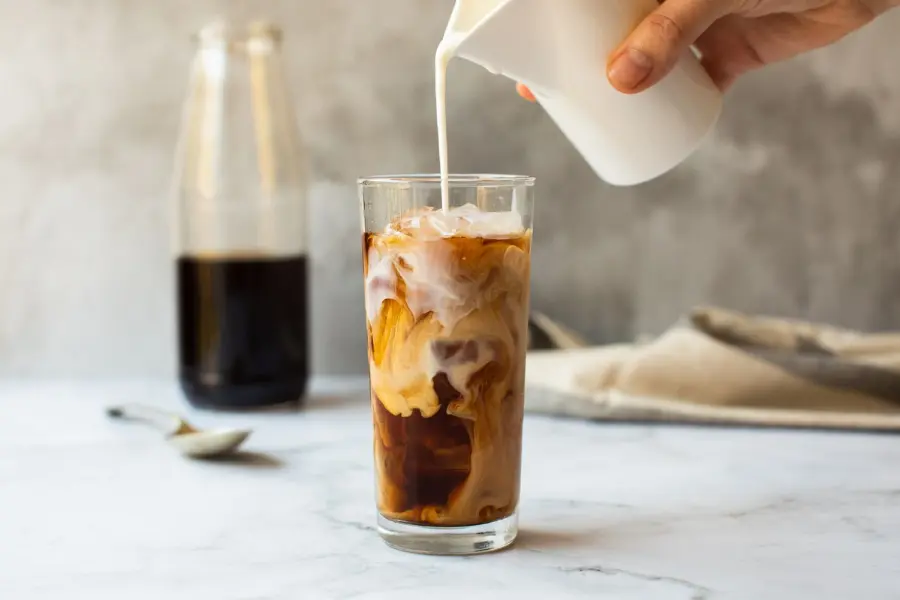
Iced coffee is pretty much just regular coffee that’s brewed hot. Then the bartender will cool the coffee cup with some ice. It is the same coffee you would brew in the morning but rather than drink it hot. Image that, you can chill it to make a refreshing cold drink out of it to start a productive day. To make iced coffee, any brewing method, like drip, pour-over, or even a French press, can be used.
The result is bold and strong coffee as the hot version, but the cold. You can enjoy it with milk, cream, or sweeteners to taste. It’s quick to make, especially if you just have a little time. To be more convenient and save time, it is advisable to brew a hot pot and store it in the fridge.
Key Differences Between Cold Brew vs Iced Coffee
Although cold brew and iced coffee are both served over ice, the methodology in their time preparations, caffeine content, and even how they affect your body. Let’s take a look at the main differences with me now!
Brewing Method
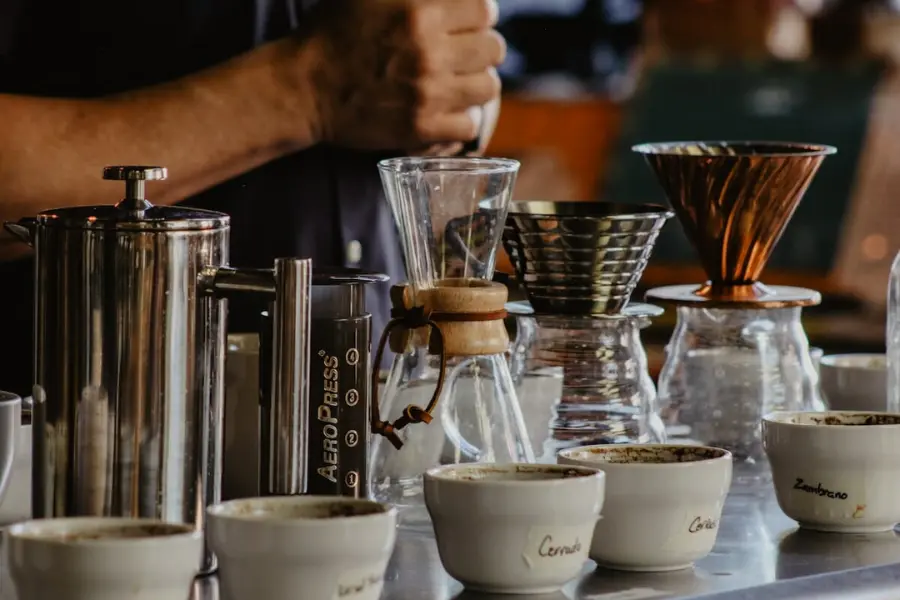
The brewing method is one of the biggest differences. Cold brew is steeped in cold water, with a slow, smooth extraction, while iced coffee is brewed hot for a quicker, bolder flavor.
Firstly, you can make a cold brew cup by soaking coffee grounds in cold water, (about 12 to 24 hours). This slow extraction process does not use any heat, creating a smoother, less acidic flavor. Since the coffee brews cold, the coffee is naturally sweeter and mellower in flavor.
On the other hand, iced coffee uses hot water just like any regular brew of coffee. The heat extracts flavors from the coffee grounds with such rapidity that it almost gives them a very bold and intense taste. The mixture is then cooled down and poured over ice after it has been brewed. There is a lot of speed attached to this process, but that does make the taste considerably more acidic compared to cold brew. If it isn’t cooled well enough before consumption.
Caffeine Content

Like every type of coffee like espresso or breve coffee, caffeine plays an important role in creating real taste. In general, cold brew tends to have higher levels of caffeine compared to iced coffee. This is so because cold brew uses more grounds while brewing and the time taken for steeping may be as much as 24 hours, while brewing is the exact opposite of steeping. More caffeine will, therefore, be pulled out of the grounds and a stronger concentration of the end product will be realized.
It may be that iced coffee, which is usually made by cooling hot-brewed coffee. This kind of coffee is also typically served over ice in a weaker form. Using hot water for a shorter period extracts less caffeine from the beans, and the ice and milk or water dilute the drink further. Then again, if you want it to really knock your socks off, you’ll probably find a cold brew to be the superior choice.
Taste

The taste of cold brew is extremely smooth, naturally sweet, and less acidic. Because cold water extracts the flavors in a much gentler manner from the grounds of coffee. So will have a mellower flavor profile without the bitterness or sharpness you find in hot-brewed coffee. Due to its lower acidity, most people find cold brew easier to handle on the stomach.
In contrast, iced coffee has a bolder and more pronounced flavor. Because it is brewed with hot water, the coffee oils and acids are extracted quicker, so the iced coffee is richer, sometimes even more bitter. The sudden cooling also helps in terms of locking the intensity of the coffee, thus making it perfect for those who love a far stronger and sharper coffee experience. Not only iced coffee, those kinds also use ice as a key ingredient, like iced macchiato vs iced latte.
Preparation Time
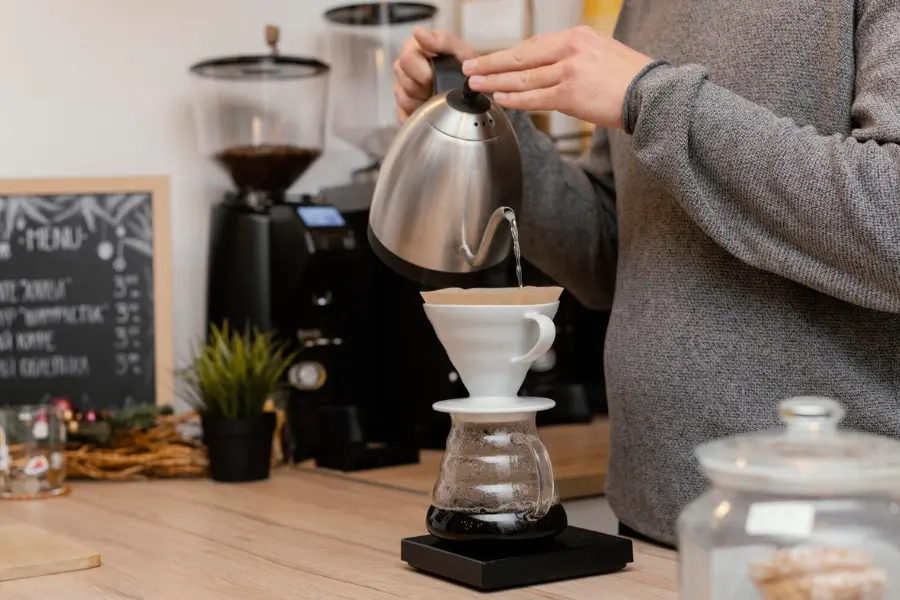
Cold brew has a longer preparatory time, compared to iced coffee. In making cold brew, you steep coarsely ground beans in cold water for about 12 to 24 hours. Such a long process of extraction requires that you be patient in developing the coffee into its smooth and mellow flavor. Preparation is rather simple, but with rather a long brew time.
But ice coffee is ready so much quicker; even though it does actually brew hot through traditional methods such as drip or pour-over. So you can have a fresh pot in just minutes, then cool it down with ice. Thus, iced coffee turns out to be handier in those cases when one wants to have chilled coffee but just cannot wait.
Temperature Control
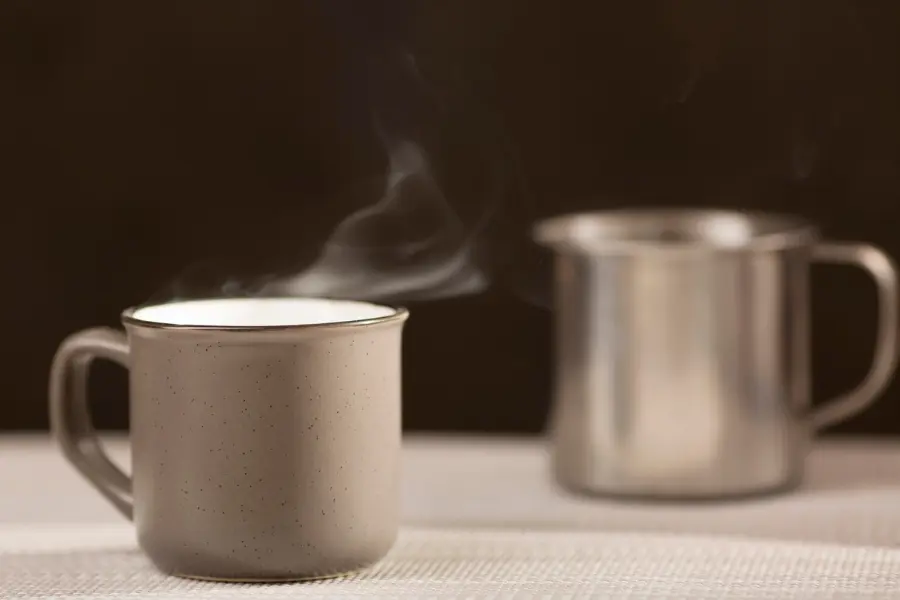
Cold brew tends to remain cold for longer compared to iced coffee. Because cold brew starts with cold water from the very beginning, it’s not just cold. It’s resistant to temperature changes. So, if you pour cold brew over ice, it will keep cool and not get too watered down. You can enjoy your cold drink for longer.
Cold brew has no involvement with heat whatsoever in its process of making, while iced coffee is brewed hot and then poured over ice, which more likely melts the ice faster. This might also dilute your drink and make it less tasty over time. If you want your drink to stay cold longer, cold brew generally holds up better especially when it is hot outside.
Here is the summary the main distinctives of cold brew vs iced coffee:
| Aspect | Cold brew | Iced coffee |
| Brewing Method | Coffee grounds are steeped in cold water for 12-24 hours (with slow extraction and no heat). | Brewed with hot water like regular coffee, then cooled and poured over ice. |
| Caffeine Content | More caffeine due to using more coffee grounds and longer steeping time. | Lower caffeine content as it is brewed quickly and often diluted with ice, milk, or water. |
| Taste | Smooth, naturally sweet, less acidic, and lacks bitterness. Easier on the stomach. | Bold, strong flavor with a richer, sometimes bitter taste. Perfect for those who prefer intensity. |
| Preparation Time | Takes longer (12–24 hours) but involves a simple process. | Quick to prepare (a few minutes) using traditional hot brewing methods and immediate cooling. |
| Temperature Control | Stay cold longer and resist temperature changes, with minimal dilution from ice. | Ice melts faster, potentially diluting the drink and reducing its flavor if not cooled properly. |
Final Thought
In conclusion, the choice between cold brew vs iced coffee comes to personal taste and lifestyle. Cold brew is smoother and less acidic, packing a heavier punch for those who enjoy smooth and long-lasting drinks. Iced coffee would offer a bold and refreshing flavor with the convenience of quicker preparation. Why not try both, since each drink has a certain appeal, and then see which one will satisfy your craving for coffee? Follow up our next article to understand more about the coffee world!




